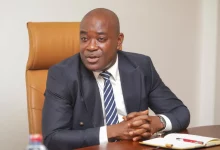The Ministry of Education and teacher Unions are up in arms over the implementation of the Ghana Partnership Schools (GPS) Project scheduled to take off this September.
The GPS Project, which will be piloted in the Ashanti, Northern, Central and Greater Accra Regions, seeks to surrender the running of more than 100 public basic schools to private management.
To be run for three years and made permanent afterwards, the ministry and the Ghana Education Service (GES) are collaborating with ARK, an international consortium to implement the project.
The project also empowers the private operators to decide whether to work with the GES staff or not, while the transfer of the staff from the selected schools to other schools will not attract transfer grants.
This, according to the government, is to improve the standards of education in the country.
However, unions in the pre-tertiary education sector on Tuesday kicked against it, saying the project was a “subtle and eventual privatisation, commercialisation and commodification” of public education in the country.
The unions include the Ghana National Association of Teachers (GNAT), National Association of Graduate Teachers (NAGRAT), Teachers and Educational Workers Union (TEWU) and Coalition of Concerned Teachers (CCT).
Addressing a press conference in Accra yesterday, Mr David Ofori Acheampong, General Secretary of GNAT said the project was against the union’s collective agreements with the GES and the Labour Act, 2003 (Act 651).
Instead of the project, Mr Acheampong urged government to provide all required logistics needed for quality public education and the needs for staff to elevate the desired level of public education.
But reacting to the concerns of the teachers, Public Relations Officer of the Education Ministry, Vincent Ekow Assafuah insists the project would be implemented to improve academic work.
From the exchanges, the Ghanaian Times is inclined to believe that there has not been any or enough consultation between the government and the teacher union on the project.
Ideally, as partners in education, the ministry and the teacher unions ought to jaw-jaw to ensure that any programme in the sector is mutually beneficial and served the overall interest of the sector.
That is why we find it is unhealthy for stakeholders in this important sector to draw their swords in the media space and battle it out when dialogue has proven to be a better option.
The Ghanaian Times therefore calls on the two stakeholders to cease fire, meet and resolve their differences and agree on a better way to improve the standards of education.
The standard of education in the country is a matter of concern to all and we do not expect them to take it for granted. We look forward to hearing that a consensus has been reached.



